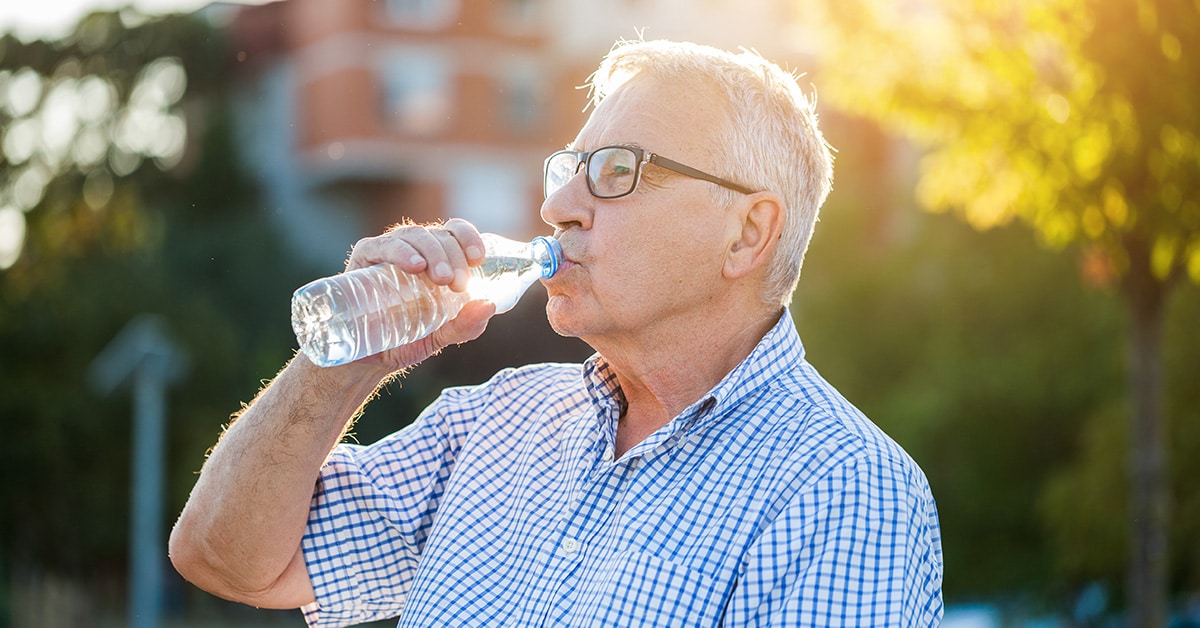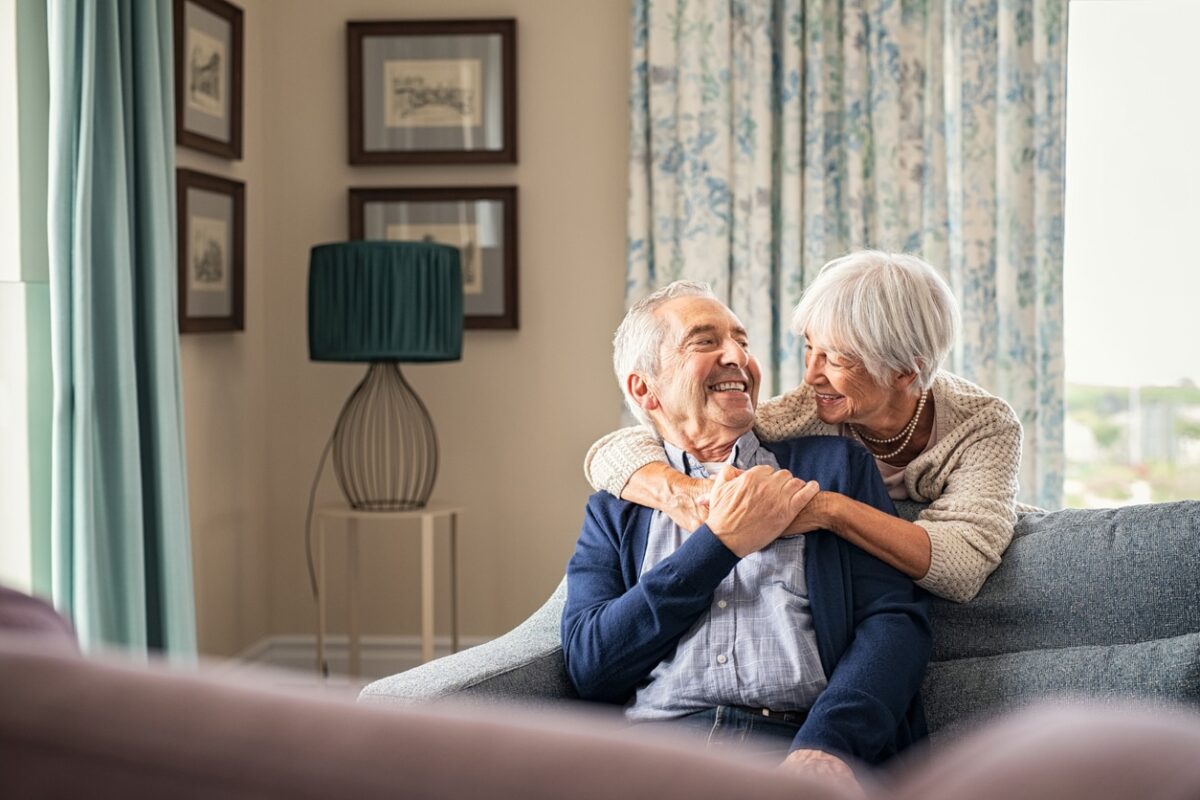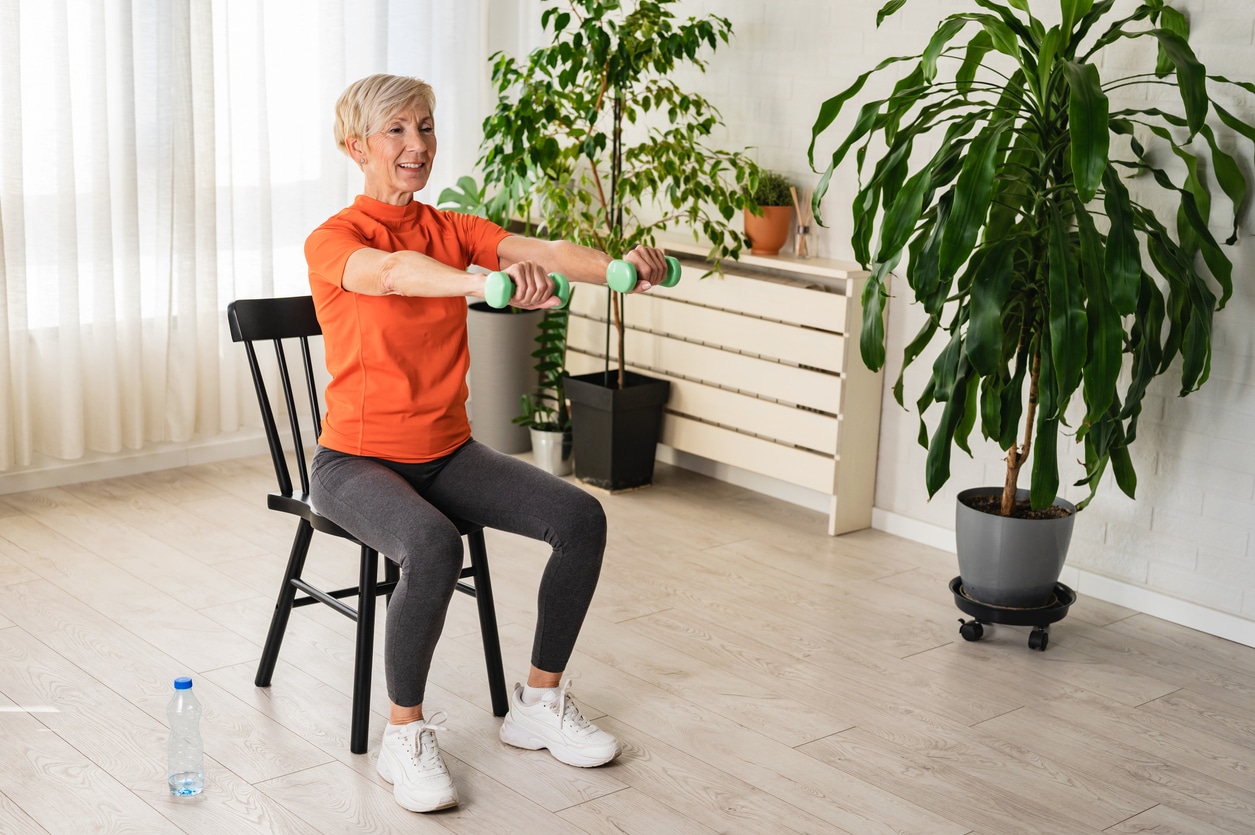We asked the experts what you need to know about medical conditions that can beset older adults in the summer months. Here are their hot-weather tips for seniors:
Hot Weather Tips for Seniors
1. Heat Exhaustion and Stroke
Any symptoms of heat exhaustion or stroke – flushing in the face, increased body temperature, headaches, nausea, increased heart rate, dizziness, and confusion – requires immediate action, according to Carolyn Dean, a Hawaii-based MD and aging, nutrition, and diet expert. “The body needs to be cooled down with air conditioning; a cold shower or bath; and electrolytes, including magnesium citrate powder mixed in water with sea salt, which will allow the cells to function more effectively in cooling the body and will relieve any headachy symptoms.”
2. Sunburn
Overexposure to the sun heightens the risk of heat stroke and skin cancer. “Seniors can protect themselves with a quality natural sunscreen UV blocker, and by wearing a hat or other protective garments,” Dean counsels. Limit exposure to direct sunlight to 10 to 15 minutes at a time. Get more senior summer skin care tips
3. Dehydration
Carol Meerschaert, a registered dietitian with Surrey Services for Seniors in Devon, PA, says: “Everyone will tell you to drink water, but there is only so much you can drink till you slosh around. Fruits and vegetables are over 90% water, and most of us already get 20% of our water from these healthy foods. Grabbing an apple or munching on fresh snap peas or broccoli florets offers water and so much more.” Learn more about symptoms of dehydration in seniors.
4. Food Poisoning
This is of particular concern with “summertime outdoor food preparation, barbecues, grandkids with dirty fingers and hands from outdoor play, and food being passed around,” Dean says. “Keep leftovers stored properly, and keep hand wipes readily available for all of those that are handling food outside during family gatherings.”
5. Traveler’s Thrombosis
This occurs when the blood thickens into a clot, which can travel to the lungs and make breathing difficult, or even cause death. According to the World Health Organization, DVT occurs more commonly in older people, and the inertia of travel heightens the risk. Leg and foot exercises while seated will help encourage blood flow. Learn to minimize the negative effects of plane travel.
Follow these hot-weather tips for seniors to ensure a safe summer!
Don’t disregard professional medical advice, or delay seeking it, because of what you read here. This information is not intended as a substitute for professional consultation, diagnosis or treatment; it is provided “as is” without any representations or warranties, express or implied. Always consult a healthcare provider if you have specific questions about any medical matter, and seek professional attention immediately if you think you or someone in your care may be suffering from a healthcare condition.



